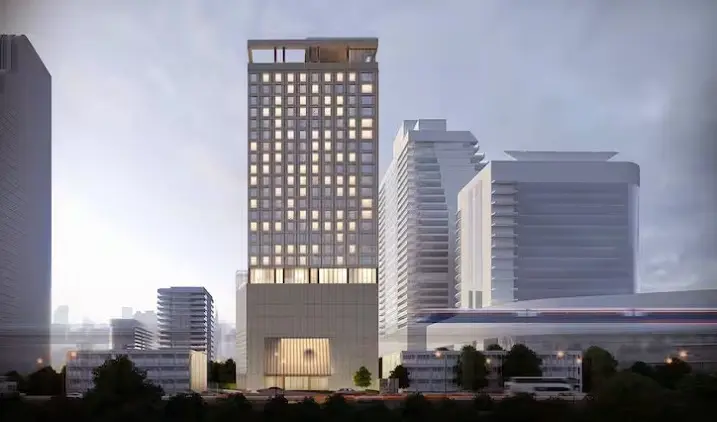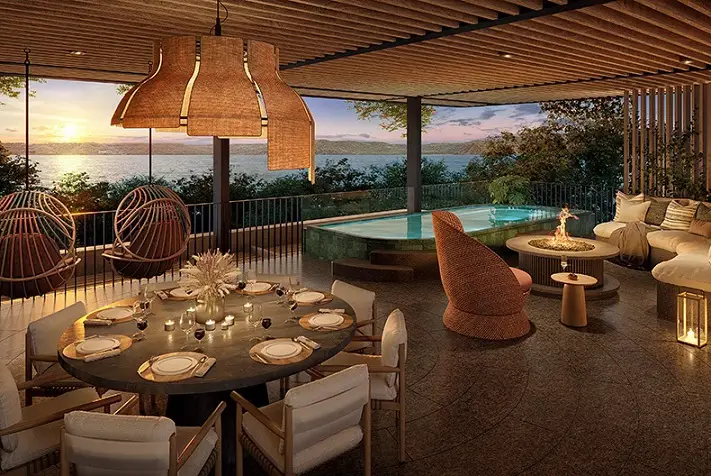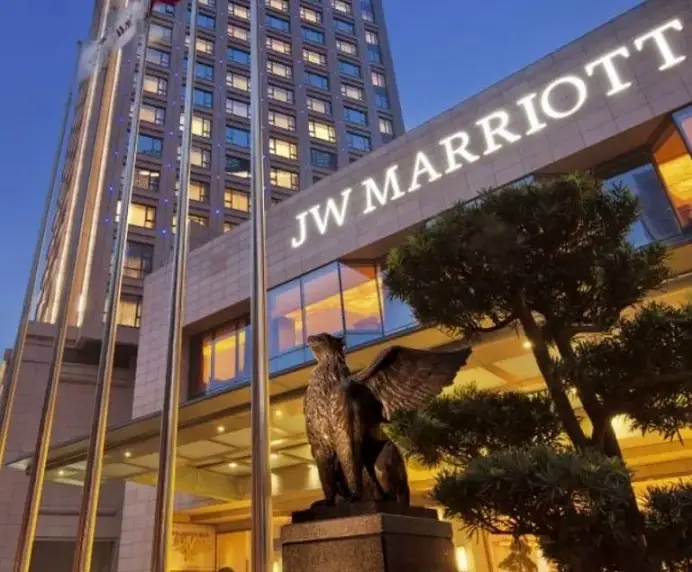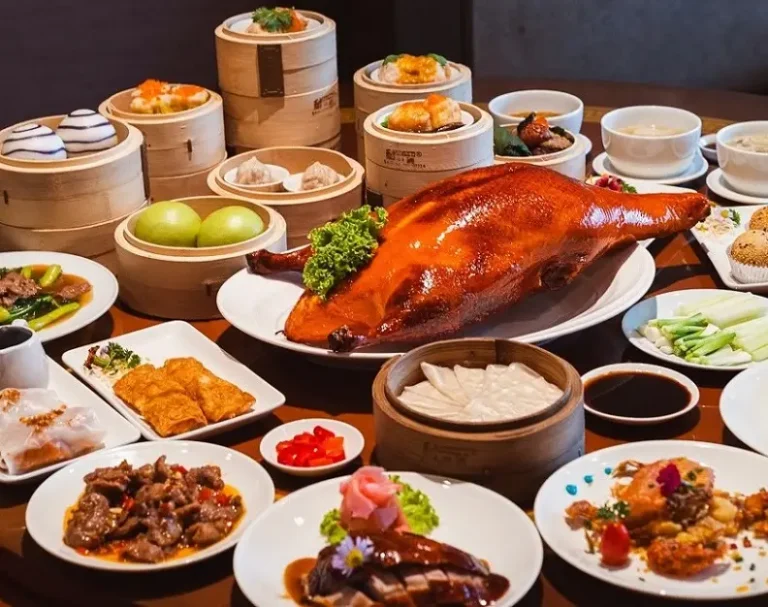
Hotel News: Thailand tourism surge lures global giants Thailand is once again proving to be a powerhouse in the global tourism sector. Following a turbulent few years due to the COVID-19 pandemic, the country is staging a remarkable comeback. In 2024, Thailand welcomed 34 million international visitors, and forecasts for 2025 are even more optimistic despite the global economic slowdown, with 35 million arrivals expected. These surging numbers have caught the attention of major international hotel chains, none more so than Hilton, which has significantly increased its footprint in the region.

Image Title: Hilton
Alexandra Murray, Hilton’s area vice president and regional head of Southeast Asia, emphasized how both international and domestic travel are driving robust hotel demand. Last year, Hilton strategically opened the Hilton Garden Inn Rayong and the Hilton Garden Inn Bangkok Riverside. These new properties pushed Hilton’s Thailand portfolio to 15 hotels spanning five key brands: Waldorf Astoria, Conrad, Hilton, DoubleTree by Hilton, and Hilton Garden Inn. This Hotel News report highlights how these developments have made Thailand Hilton’s largest operational market in Southeast Asia.
A top priority for Hilton’s regional expansion
“Thailand is a priority market for our growth in Southeast Asia,” said Maria Ariizumi, Hilton’s vice president of development in the region. She cited strong investor confidence and favorable economic conditions as catalysts for this growth, despite occasional quarterly fluctuations. Bangkok continues to maintain solid hotel performance, while Phuket, one of Thailand’s coastal tourism jewels, is experiencing impressive growth. Hilton executives agree the country offers dynamic potential for expansion, from luxury to midscale offerings.
Alan Watts, Hilton’s president for Asia-Pacific, revealed during the company’s earnings call that Hilton opened 36 hotels across the Asia-Pacific region in the second quarter of 2024. The region now boasts 837 Hilton-branded properties with an average occupancy rate of 69.5%. The company’s goal is to surpass 1,000 hotels in the region by 2025—a milestone that Thailand will help deliver.
Thailand leads Hilton’s franchise revolution
Thailand is not just playing a part in Hilton’s growth story—it’s becoming a key frontier in a strategic shift. Alexandra Murray confirmed that of the 86 properties currently in development across Southeast Asia, 21 are located in Thailand. One of the most anticipated projects is the KROMO Bangkok, part of Hilton’s Curio Collection, set to open in 2025. This new lifestyle brand reflects Hilton’s ambition to tailor its offerings to a maturing and more diversified Southeast Asian travel market.
Hilton is also leaning into a global trend that has taken time to reach Asia: franchising. While the franchise model has long been dominant in the U.S. and Europe, it is now gaining traction in Southeast Asia as well. Post-COVID, more Thai hotel owners are looking to franchise or convert their management agreements into franchises, attracted by the flexibility and revenue potential such deals offer.
“Hilton has a big tool kit with many brands that they can franchise, so it’s the right brands, the right time,” one Hilton executive noted. The company is also working to qualify a range of trusted third-party management companies to support this strategy. According to Ariizumi, the Hilton Garden Inn brand, in particular, offers owners an efficient operational model with high return-on-investment potential.
Strategic investments and market gaps
The growing interest in franchising is attracting international investors. In September 2023, Canadian investment firm TriO Capital—part of the Ovolo Group—acquired the Hilton Garden Inn Phuket Bang Tao. Managing Director Tim Alpe said the acquisition was driven by a desire to capitalize on Thailand’s booming tourism rebound. The property’s location in Bang Tao, on Phuket’s northwest coast, offers a rare opportunity in a submarket where demand consistently outpaces supply.
Paul Chakkrit Chakrabandhu Na Ayudhya of JLL Thailand, who brokered the deal, highlighted Bang Tao’s appeal. The area’s four-mile beach stretch has long been a prime investment target, yet properties rarely come to market. With a 177-room development planned for early 2025, the franchise deal is expected to fill a significant accommodation gap.
Luxury remains a powerful draw
Even as franchising and midscale brands expand, Hilton is doubling down on its luxury offerings. While there’s growing demand from price-sensitive travelers, premium hospitality remains a key focus. Hilton’s luxury brands such as Waldorf Astoria and the LXR collection are making deeper inroads in Thailand’s most competitive markets like Bangkok, Phuket, and Pattaya.
What’s particularly notable is the emergence of micro-markets. Instead of focusing on a single flagship in a key city, Hilton is deploying different luxury and lifestyle brands tailored to various demographics and travel purposes. According to Murray, Hilton plans to expand its existing luxury brands beyond Bangkok, where their presence is already well-established. She also hinted at the possibility of debuting new brands in the country to meet rising owner interest in the high-end hospitality segment.
Thailand poised to become regional franchising capital
As Thailand helps lead Hilton’s transformation in Southeast Asia, the shift toward franchising marks a broader evolution in the region’s hotel industry. The company sees Thailand as fertile ground for this model, aligning with trends seen across more mature global markets. With over 90% of Hilton’s hotels in the Americas already franchised, the success of this model is well established.
More importantly, the willingness of Thai developers and investors to adopt and adapt the model speaks volumes about the maturity of the local hotel industry. Hilton’s diversified approach—ranging from efficient midscale models to opulent luxury properties—is enabling it to cater to both shifting market dynamics and rising guest expectations.
With high demand, strong investor appetite, and a tourism industry once again on the rise, Thailand is rapidly becoming Hilton’s flagship market in Southeast Asia. The blend of franchise growth, new brand launches, and deepening luxury investments signals a bold new chapter in Thai hospitality—one that’s likely to inspire similar moves from competitors.
For the more about Hilton’s expansion plans in Thailand, keep on logging to Bangkok Hotel News.






